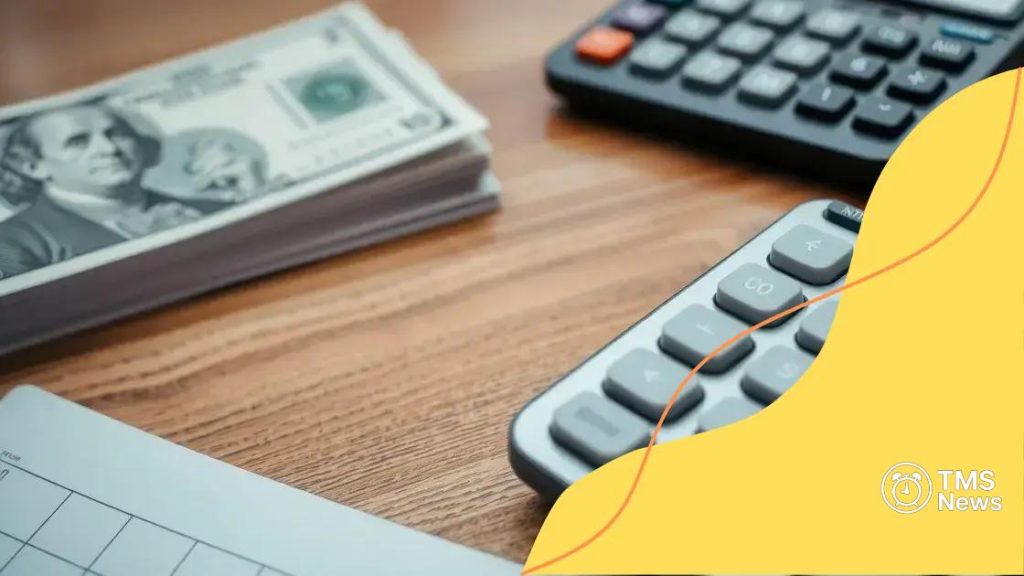SAVE repayment plan halt: what you need to know

Anúncios
The SAVE repayment plan halt temporarily pauses student loan payments, allowing borrowers to manage financial stress while considering alternatives like refinancing or income-driven repayment options.
SAVE repayment plan halt may cause uncertainty for many borrowers. Have you wondered how this might affect your financial stability? Let’s dive into what a halt means for your repayments and what you need to do next.
Anúncios
Understanding the SAVE repayment plan
Understanding the SAVE repayment plan is essential for borrowers navigating their student loans. This plan is designed to provide a more affordable and manageable way for you to repay your loans. But how does it work?
What is the SAVE repayment plan?
The SAVE repayment plan modifies the way you pay off your loans, taking into account your income and family size. This means that instead of a single monthly payment, your payment can be adjusted based on your financial situation.
Key features of the SAVE plan
- Income-driven payments: Your monthly payment depends on your income and may be lower than traditional plans.
- Family size considerations: Larger families typically have lower payment amounts due to higher living expenses.
- Interest benefits: The plan may also reduce the amount of interest you accrue, making it easier to manage your debt.
When you enter the SAVE repayment plan, it’s crucial to keep detailed records of your income. This helps ensure your monthly payments are accurately calculated. You may also find that checking with your loan servicer regularly can keep you informed about any changes.
Anúncios
Many borrowers have expressed concerns about the long-term impact of the SAVE repayment plan. If your payments are reduced significantly, you might wonder how this affects your loan’s life cycle. However, the plan aims to support borrowers by preventing them from falling into default.
Engaging with the SAVE repayment plan can lead to peace of mind. Instead of stress and uncertainty, many find this plan creates a manageable path to repaying their loans. Remember, every borrower’s situation is different, so it’s essential to carefully review how the SAVE plan applies to your unique circumstances.
What a halt in repayment means for borrowers
A halt in repayment can significantly impact borrowers in various ways. Understanding what this means is crucial for anyone involved in student loans or other forms of debt. When payments are paused, it raises questions about how interest accrues and the overall balance of the loan.
Effects on loan balance
During a repayment halt, the amount of interest that accrues on your loans can change. While some plans stop interest growth entirely, others may allow it to continue. If interest accrues, your total debt might grow.
Financial stress reduction
One immediate benefit of a repayment halt is reduced financial stress. It provides borrowers with a necessary break, allowing them to focus on other expenses. Many find relief in knowing they do not have to make monthly payments during this time.
- Time to reassess finances: Borrowers can use this time to evaluate their budgets and financial goals.
- Preparation for repayment: It’s a chance to prepare for when payments resume, helping avoid surprises.
- Consideration of alternatives: This period can encourage exploring other repayment options.
However, it’s important to maintain communication with your loan servicer throughout the halt. They can provide updates on what happens next and any necessary steps you should take before payments resume.
Many borrowers also experience anxiety about the future of their loans. If payments are halted for a long period, there might be concerns about how it affects eligibility for forgiveness programs or future credit opportunities.
Impact on your credit score during the halt

The impact on your credit score during a halt in repayment can be significant and requires careful attention. While you may find relief from making payments, it’s essential to understand how this affects your credit profile.
Credit reporting during repayment halts
Most lenders will report your payment status to credit bureaus, which can influence your credit score. If your loans are in a repayment halt, they might still be marked as current, preventing negative impacts on your credit score.
Potential positive effects
A repayment halt can have some positive effects on your credit score. If your loans are managed correctly, they can show that you are current on your payments, which can help maintain or improve your score. This is especially true for those who may have previously struggled with payments.
- Reduced risk of default: With payments paused, there’s less chance of falling into default status.
- Improved payment history: As long as your lender reports your account as current, your payment history remains strong.
- Opportunity to focus on other debts: You can use this time to manage other financial responsibilities without worrying about current loan payments.
However, it’s crucial to communicate regularly with your lender to ensure they accurately report your account status. This proactive approach helps safeguard your credit score during the halt.
Many borrowers find themselves confused about how repayment pauses affect their scores. If you plan to apply for credit in the future, staying informed about your credit report is vital. Review your score and report periodically, especially during and after the halt.
Alternatives to consider in case of a halt
When a halt in repayments occurs, it’s important to explore alternatives that can support your financial situation. Many borrowers overlook options that can ease the burden of student loans or other debts during this time.
Refinancing your loans
One viable alternative is refinancing your loans. This allows you to secure a better interest rate or consolidate multiple loans into one. By doing this, you can lower your monthly payments and potentially save money over time.
Adjusting your budget
Reevaluating your budget is another crucial step. Take a close look at your income and expenses to identify areas where you can cut back. Every dollar saved can contribute to future payments when they resume.
- Prioritize essential expenses: Focus on needs over wants to improve your financial health.
- Track spending: Use apps or spreadsheets to monitor where your money goes each month.
- Set financial goals: Create short-term and long-term goals to guide your saving efforts.
Exploring income-driven repayment plans is also beneficial. These plans adjust your payments based on your income, which can be less stressful as you transition back to normal repayment conditions. When evaluating this option, communicate with your loan servicer to determine eligibility.
Consider seeking financial advice from a professional as well. A financial advisor can provide guidance tailored to your circumstances, helping you navigate through the complexities of debt management during a repayment halt. Their expertise can prove invaluable in finding the right path forward.
Next steps to prepare for potential changes
Preparing for potential changes in your repayment plan is essential, especially during a halt. Understanding what steps to take can help you feel more in control of your financial future.
Stay informed about your loans
First, keep track of any updates regarding your loans. This means checking your email for communications from your loan servicer or visiting their website regularly. Staying informed ensures you are aware of any changes that may impact your repayment status.
Document your income
Gathering information about your current income is also important. Having a clear understanding of your financial situation helps when making decisions about future payments. Documenting your income and expenses can aid in applying for income-driven repayment plans if necessary.
- Gather pay stubs: Collect recent pay stubs to accurately reflect your earnings.
- Calculate monthly expenses: Know your essential expenses to see how much you can allocate for loan payments.
- Review financial goals: Align your loan repayment strategies with your overall financial objectives.
Consider contacting your loan servicer for guidance. They can provide recommendations tailored to your situation and the specifics of your loan. Part of this process is understanding how to use your loan servicer’s resources effectively.
Additionally, plan for potential changes by reviewing your budget. Adjust your budget to see how a shift in income or payments might feel. It can be helpful to create different scenarios, such as a small increase in payments or entering a different repayment plan.
FAQ – Common Questions about the SAVE Repayment Plan Halt
What is the SAVE repayment plan halt?
The SAVE repayment plan halt is a temporary pause in student loan payments, allowing borrowers to reassess their financial situations without the pressure of monthly payments.
How does a halt affect my credit score?
During the halt, loans may be reported as current, which can help maintain or improve your credit score, as long as interest does not accrue excessively.
What steps should I take during a repayment halt?
Use this time to track your income, explore alternative repayment options, and stay informed about updates from your loan servicer.
Are there alternatives to consider if my repayment is halted?
Yes, consider refinancing your loans, adjusting your budget, or applying for income-driven repayment plans to better manage your student debt.





